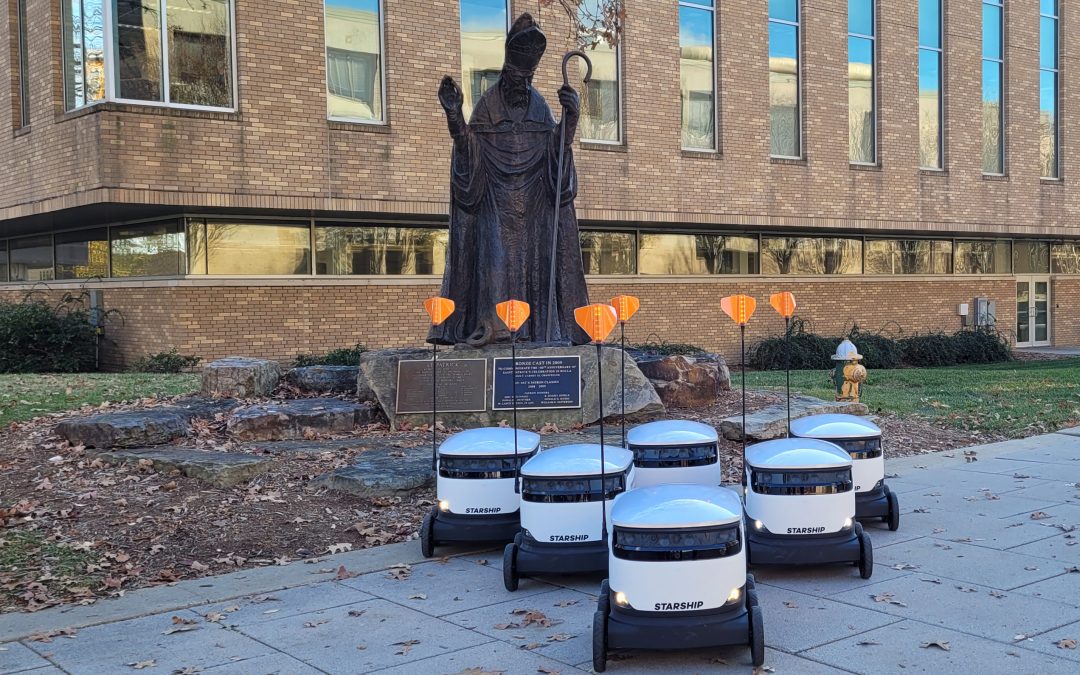Students and faculty at Missouri University of Science and Technology in central Missouri now have access to robotic food delivery thanks to a partnership with Starship Technologies that placed 16 hard-working, autonomous bots on campus.
 Starship’s fleet of on-demand robots will deliver from all campus eateries. The school’s students and staff can now use the Starship app to order food and drinks from local retailers to be delivered anywhere on campus, within minutes. The service works in conjunction with the student meal plan.
Starship’s fleet of on-demand robots will deliver from all campus eateries. The school’s students and staff can now use the Starship app to order food and drinks from local retailers to be delivered anywhere on campus, within minutes. The service works in conjunction with the student meal plan.
As delivery via robots and drones gains steam, it’s notable that some such providers are routing these orders through their own apps, rather than third-party delivery providers like Uber Eats and DoorDash.
“I’m really excited for these robots! Having the ability to get breakfast delivered right to my door simply with my meal plan will be a lifesaver for early classes and long days,” said student Olivia Romisch.
Starship is already providing services to campuses across the country, including Bowling Green State University, University of Utah and University of Idaho. Since launch, all campuses have increased the number of robots, dining options and hours of operation to meet the high demand for the service.
To get started, users open the Starship Deliveries app, choose from a range of their favorite food or drink items, then drop a pin where they want their delivery to be sent. They can then watch as the robot makes its journey to them, via an interactive map.
Once the robot arrives, they receive an alert, and can then meet and unlock it through the app. The delivery usually takes just a matter of minutes, depending on the menu items ordered and the distance the robot must travel. Each robot can carry the equivalent of about three shopping bags of goods.
 “We’re looking forward to serving the Missouri S&T campus community,” said Chris Neider, director of business development at Starship Technologies. “We know these students appreciate tech so we think it will be a great experience for them to interact with our robots every day. Plus, we can’t wait to hire some of them for valuable real-world training.”
“We’re looking forward to serving the Missouri S&T campus community,” said Chris Neider, director of business development at Starship Technologies. “We know these students appreciate tech so we think it will be a great experience for them to interact with our robots every day. Plus, we can’t wait to hire some of them for valuable real-world training.”
Starship Technologies operates commercially on a daily basis around the world. Its zero-emission robots have made more than 4 million autonomous deliveries, traveled millions of miles and make more than 140,000 road crossings every day.
The robots use a combination of machine learning, artificial intelligence and sensors to travel on sidewalks and navigate around obstacles. The computer vision-based navigation helps the robots to map their environment to the nearest inch. The robots can cross streets, climb curbs, travel at night and operate in both rain and snow. A team of humans can also monitor their progress remotely and can provide assistance if needed.


